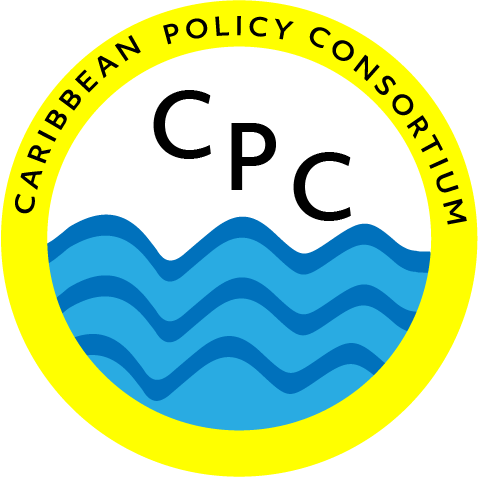Media Advisory:
The Caribbean Policy Consortium (CPC) & Guyana Business Journal (GBJ) invite you to Episode VI of Transforming Guyana: Guyana’s role in a world that still needs oil: Domestic and regional energy security and the USA CESI
You can view the entire presentation here
Panelists
Roger Kranenburg, Vice President, Energy Strategy and Policy, Eversource; Anthony Bryan, Senior Fellow , Institute of International Relations UWI, St.; Augustine, Trinidad and Tobago; Dax Driver, CEO & President, Energy Chamber of Trinidad & Tobago; Lorraine Sobers, Lecturer, Department of Chemical Engineering Petroleum Studies Unit, University of the West Indies; and Bobby Gossai, Jr., Senior Petroleum Coordinator, Petroleum Management Programme, Ministry of Natural Resources, Guyana.
Quotes
- Anthony Bryan:
- “The country has a problem with ethnic rivalry but I think oil and possibly gas may be the glue that brings the ethnic groups together rather than dividing them.”
- “Trying to do too much too quickly and promising too much too quickly is probably going to fall short… Everything doesn’t have to be built in a day, it can take time. It should be well-planned and well-structured. Do not focus just on immediate problems, but look at opportunities long-term.”
- “CARICOM nations are still very minor contributors to global carbon footprint and climate change, and in 2030 they are continuing fossil fuel production as a funding pathway to renewable energy. So, oil and gas are playing a key role in this economy as they invest incremental portions of their revenue from oil and gas into renewable and sustainable energy in order to meet their renewable goals in 2030.”
- Roger Kranenburg:
- “Use this benefit you have today, definitely make the best use out of it but work to develop a diversified economy. Economies that are just dependent on resources are tough economies to run effectively even if they are very wealthy. Take this gift and invest it for the future.”
- “Fossil energy is here to stay for some time, but the world is very focused on a decarbonized future and getting there as best as we can, and for society I think it’s a good thing.”
- “Guyana has a very bright future in leveraging what’s a essentially a waste product or limited valued product, in the associated gas in those fields. My personal view is economically it doesn’t make a lot of sense for Guyana to invest in refining, these are global markets and you pick what you’re playing in that market. Oil goes to the global market and the current volumes of gas and where it’s located, that’s tough to put on the global market, it may change in the future but right now that gas is a low-value commodity so [instead] bring that to shore.”
- “I’m a strong supporter of it [gas-to-shore] and would very much like to see Guyana move forward in that project. It may seem expensive but if you play out Guyana’s future, it could be such a prosperous future and the expense will be nominal compared to the benefits that can be derived.”
- “In the renewables future, if you’ve got a system that’s run off of gas, it actually makes it very much able to integrate renewables effectively. A renewable I find very exciting for Guyana is solar. I think it’s an extremely bright future for the country.”
- Lorraine Sobers:
- “Electricity is an important part of energy security and they’re intrinsically linked because the cost of energy effects every facet of our modern society, linked to power generation and also the transportation.”
- “The good news is Guyana has begun taking steps to move from that state of energy insecurity by becoming a net exporter of crude and low-carbon development strategy [which includes] the gas-to-power and renewable energy.”
- “Guyana really needs reliable power generation and distribution, it’s critical to so many services. In the next decade, we’re looking at increased demand, decarbonizing of the power generation, digitalization, infrastructure and its ability to withstand extreme weather events with climate change.”
- “Guyana’s power sector has to be reconfigured to meet demand to facilitate the input of multiple renewable energy producers. Multiple producers and variable renewable energy sources would ensure that there’s resilience built into the system so that we have energy security.”
- Dax Driver:
- “There is a fight for investment dollars within the major oil and gas producers, there’s a big fight that goes on within those companies about where there capital is going to be allocated, the companies are weary about where’ they’re allocating capital because of climate change and the push for net-zero. They’ve become very disciplined about their capital allocations because of this concern about the long-term demand for oil and gas.”
- “Clearly Guyana has been up till now highly attractive, that’s partly because of the structure of the production sharing agreement which is in place.”
- “Another thing I would also emphasize is the speed of development, it’s unprecedented how fast Exxon and their partners have gone in working with the government of Guyana from a find to production. This has happened much faster than elsewhere, and that speedy development adds huge value to the resources of a country.”
- David Lewis:
- “This is all about as Roger mentioned, providing the best available public goods to the population. We all talk about people saying, oh, let’s look at Sweden and Finland and say, Well, you know, that’s what they did. They maximize and monetize these resources, made them available as investments, not expensive investments in public goods, health, water, electricity, education and so on. And that then drove innovation, innovation drives development, development provides stability and stability provides reliability, resilience and sustainability. So at the end of the day, what good is having all these resources if you do not provide more and better public goods?”
Moderators
Terrence Blackman, Ph.D., Founder & CEO Guyana Business Journal terrence.blackman@guyanabusinessjournal.com
Dr. David E. Lewis, Fellow and Co-Chair, Caribbean Policy Consortium DavidLewis@ManchesterTrade.com
Latest Webinars
- Haiti: Moving Beyond the Crisis and U.S. Responses
- Transforming Guyana Season II, Episode 12
- CHALLENGED SOVEREIGNTY: THE IMPACT OF DRUGS, CRIME, TERRORISM AND CYBERTHREATS IN THE CARIBBEAN BY IVELAW LLOYD GRIFFITH
- Caribbean Energy 2024: Prospects, Challenges & Opportunities for Oil-Gas, Renewables and Environment
- Transforming Guyana: Season II, Episode XI, Community Engagement in the Era of Oil & Gas

